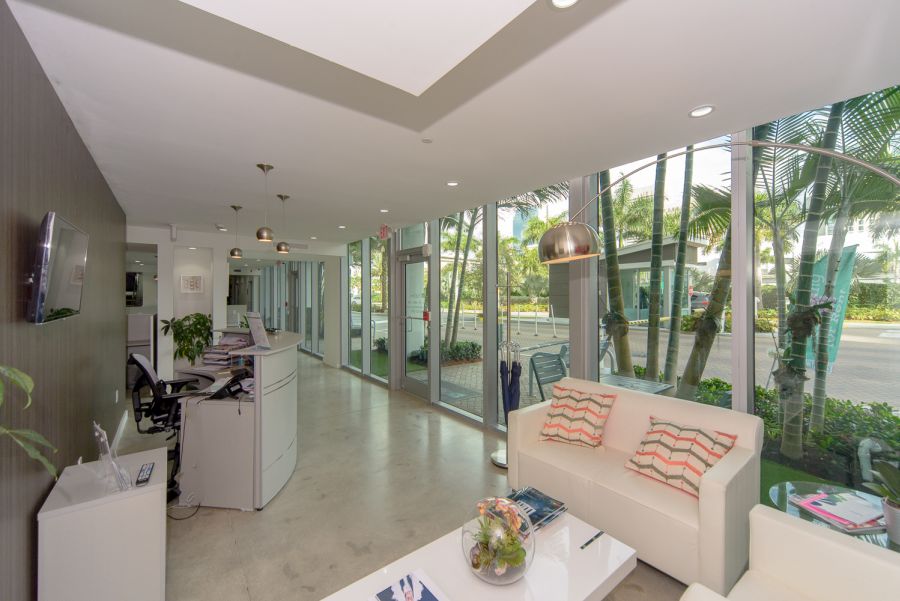When you can read and write computer code, you’ve got a lot of options. You can get a great job, you can make millions as an entrepreneur, or you can become a digital nomad and work from anywhere in the world. If you go the traditional “get a real job” route, you won’t need to worry about where to work; your boss will most likely make that decision for you. Those of us who want to be our own bosses and create our own destinies, on the other hand, have some important (and exciting) decisions to make.
Since the dawn of time, entrepreneurs and digital nomads have had two basic options: work from home or rent an office. Working from home is free, but comes with abundant distractions, loss of work-life separation, and a soul-sucking sense of lonely, depressing isolation. Renting an office provides a dedicated workspace in which to focus, away from the distractions of home, but can often be prohibitively expensive. More recently, a new option has arrived on the scene which may, for many, represent a kind of middle ground, providing the benefits of both, the drawbacks of neither, and some potentially paradigm-changing perks that have never really been possible before for self-employed individuals.
In 2005, Brad Neuberg — a coder with a passion for open-source web apps — was fed up with the available options for working environments. He had worked in an office with a “real job,” and he had worked from home (and around the world) as a self-employed digital nomad, but he felt dissatisfied with both situations. He wished he could have both the freedom and flexibility of being self-employed, along with the structure and community of working in an office setting… but such a working situation simply didn’t exist. After consulting with a life coach to figure out a way to solve his problem, Brad realized he needed to create a whole new kind of working environment; one in which people could work independently on their own projects, but together, as a community, in a shared space where they could hang out, network, and collaborate on their own terms. He called the idea “coworking.”
Brad went out and rented a space at a feminist collective in San Francisco, and invited other people to come and work there with him, to share and split the cost of the space. As an open-source enthusiast, he also encouraged other people to take his idea and run with it; to create coworking spaces in their own communities. Since then, the idea has really taken off. Coworking spaces can now be found all over the world; from San Francisco to New York to Koh Phangan, Thailand. Traditional entrepreneurs can set up shop at a coworking space in their own hometown, while digital nomads are free to travel the world at their leisure, bouncing from one co-working space to the next.
For our FVI grads and South Florida residents looking for a spot closer to home, CityDesk has created a world-class coworking space in Downtown Miami. Recently featured in bizjournals.com’s list of “South Florida’s Coolest Offices 2015,” CityDesk Miami provides a beautiful space where coders, bloggers, entrepreneurs, and startups (among others) can gather to forge their own paths in style, comfort, and good company. CityDesk’s “flex desks” start at only $199/month, and their private offices start at $799/month, and so provide a great new option for self-employed people who can’t afford expensive “traditional” office space, and might even prefer to work in a lively, energetic coworking environment anyway.


So, now that there are three options instead of two, how should one choose a working environment? The choice is often a personal one that involves many factors, but here’s a general outline to help you make your decision:
WORKING FROM HOME
Advantages:
- extremely inexpensive (or free)
- minimal (or no) time wasted commuting
- extreme comfort and convenience (it doesn’t get much more comfortable and convenient than working from your bedroom or living room, with your own refrigerator close at hand)
Disadvantages:
- distractions (family stuff, surfing the web, TV, easy to slack off without accountability, etc)
- loneliness & isolation
- work and leisure time can meld together, creating an emotionally draining and not-very-productive situation in which one is never really “working” and never really “relaxing”
- being cut off from the entrepreneurial world (missing opportunities for networking & collaboration)
Best suited to people who:
- are extremely focused and self motivated
- are not prone to distraction, or can afford to create a real “home office” away from distractions
- have the discipline to create a clear separation between work and leisure time, or are able to thrive in an always-kind-of-at-work lifestyle
- prefer to work alone, in a quiet environment
- have no interest in, and nothing to gain from, networking, hanging out, and collaborating with other self-employed entrepreneurs
- don’t have money to invest in traditional office or coworking space
TRADITIONAL OFFICE SPACE
Advantages:
- private space in which to focus on work
- good for branding
- good for building a large company in which intra-company collaboration, but not inter-company collaboration, is encouraged
Disadvantages:
- very expensive
- often require year-long commitments
- not great for networking
- can also feel lonely and isolated in a private office environment
Best suited to people who:
- want a private working environment in which to focus outside of the home, but don’t want to network, collaborate, and hang out with other entrepreneurs
- are building large companies in which employees are not encouraged to collaborate with people outside the company
COWORKING SPACE
Advantages:
- inexpensive
- lively work environment
- ample opportunities to meet, network, collaborate, and hang out with other self-motivated, self-employed entrepreneurs
- community that actively encourages focused, productive work while discouraging distracted, unproductive, and time-wasting activities
- logistically, psychologically, and emotionally supportive community of like-minded individuals
Disadvantages:
- not always ideal for building a startup or large company where trade secrets & competition (rather than openness & collaboration) are important
- not always as cheap, comfortable, and convenient as working from home
Best suited to people who:
- are self-employed, self-motivated, and self-directed
- are prone to loneliness and/or distraction while working at home
- prefer to have a clear, physical separation between work time and leisure time
- prefer to work with other people instead of alone, but don’t want to work for a company or have a boss
- are able to focus better when surrounded by a community of supportive people working productively on their own projects
- value both autonomy and community
- can benefit from networking, collaboration, and becoming friendly with like-minded self-employed entrepreneurs who may be taking similar or complementary life/career paths
- want to have an office, for branding and professional purposes, but don’t want to pay for traditional office space
Which kind of work-space do you prefer? Let us know in the comments below!






